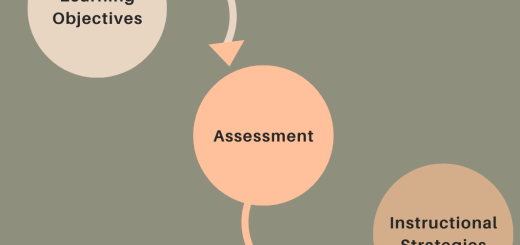Think Globally, Teach Locally
![]()
Graduating global citizens is one of Georgia Tech’s strategic goals, yet many students don’t have the opportunity to study abroad. What are we doing at home to help students engage in global challenges and develop intercultural communication skills? In last week’s CTL workshop, “Think Locally, Teach Globally,” we invited participants to consider how integrating the United Nations Sustainable Development Goals (SDGs) into their courses will help foster global citizenship no matter where students are learning. The workshop was co-facilitated by Rebecca Watts Hull (Serve-Learn-Sustain), Evan Mallen (CTL), Şebnem Özkan (Atlanta Global Studies Center), and Carol Subiño Sullivan (CTL). We aimed to meet the following workshop goals to get the ball rolling on SDGs as a teaching tool in classrooms across Georgia Tech:
- Introduce faculty to the UN SDGs and how they can be – and are being – used to integrate global challenges into Georgia Tech courses
- Explain how the SDGs can be adapted to bring a global perspective into courses in any discipline
- Identify which SDG(s) would be most appropriate to address in your course and describe opportunities for incorporating it into your course
- Identify resources available to support the use of SDGs in your teaching
What are the SDGs?
The UN SDGs are a set of 17 broad and interconnected goals that address the global challenges we face, spanning environmental issues like clean water and climate action, to social and economic issues like poverty and education. SDGs can be incorporated into any course regardless of discipline and can give students much-desired global context to their coursework and future careers. The SDGs provide a useful framework to discuss the broader implications of your course goals and how the work may have unanticipated impacts or benefits to the global population. Our workshop began with an introduction to the SDGs by Dr. Jairo Garcia (City & Regional Planning) focusing on their mission to simultaneously advance the three pillars of sustainability: Equity, Economy, and Environment.

Workshop participants were invited to consider their own courses, and how they align with particular SDGs. In a “leave a mark” activity, participants placed their courses along the spectrum of SDGs with many spanning several or even all 17. Most participants struggled to choose only one SDG, instead focusing their coursework on the relationship between them. Some courses focused on each SDG in turn, with course goals designed to broaden student perspectives on sustainability. This exercise highlighted the potential to structure courses in any discipline around the SDG framework.
Who Is Integrating SDGs in Their Courses?

To illustrate the broad utility of the SDG framework and inspire colleagues to action, faculty members from diverse programs at Georgia Tech shared examples of how they have incorporated the SDGs into their teaching. These examples included a wide variety of scales, from a single course component like a team project to entire courses structured around the SDGs, all the way up to the program curriculum scale. Our pioneer panel included
- Joyelle Harris, Electrical and Computer Engineering
- Shatakshee Dhongde, Economics
- Jairo Garcia, City and Regional Planning
- Britta Kallin, German
- Raghuram Pucha, Mechanical Engineering
After the panel, workshop participants were invited to brainstorm further opportunities in their own teaching. The group identified strategies as simple as including the SDGs on the syllabus or exploring the SLS Teaching Toolkit for in-class activities and assessments all the way up to restructuring entire courses around the SDG framework.
How can you get involved?
There are several resources available to instructors to support SDG pedagogy right here at Georgia Tech. The Center for Serve-Learn-Sustain (SLS) has links to a wealth of resources on the SDGs and on Education for Sustainable Development (ESD) in its online SLS Teaching Toolkit. Under “Tool Categories,” scroll down to find U.N. Sustainable Development Goals (SDGs). Resources include readings, videos, and other resources to support teaching with the SDGs, including blog posts written by the SLS U.N. SDGs 2019 Faculty Fellows and a variety of resources available through our regional sustainability network, RCE Greater Atlanta, acknowledged by United Nations University in 2017. RCE Greater Atlanta is one of 174 Regional Centres of Expertise on Education for Sustainable Development in the world, and one of only eight in the U.S. Georgia Tech served as one of the founding institutions for RCE Greater Atlanta and continues to serve in a leadership role. The Atlanta Global Studies Center also serves in a leadership role, in the “Higher Education Learning Community” (HELC) Action Group. If you are interested in becoming affiliated faculty with the AGSC or joining the HELC Action Group, please contact Şebnem Özkan.
To stay informed of ongoing SLS opportunities and events, sign up for the SLS e-newsletter.
Outside of Georgia Tech, the Sustainable Development Solutions Network (SDSN) offers resources like the SDG Academy and the SDG Academy University Partnership Program. You can apply now and they’ll work with you to develop sustainability curriculum. The application process is ongoing and reviewed quarterly, so get started today!
What’s next?
It was clear from this workshop that there is great interest and enthusiasm among Georgia Tech faculty to develop curriculum using the SDG framework. We aim to continue the conversation and keep this momentum going. Stay tuned for future developments as we dig deeper into Georgia Tech’s strategic goal to graduate global citizens.




